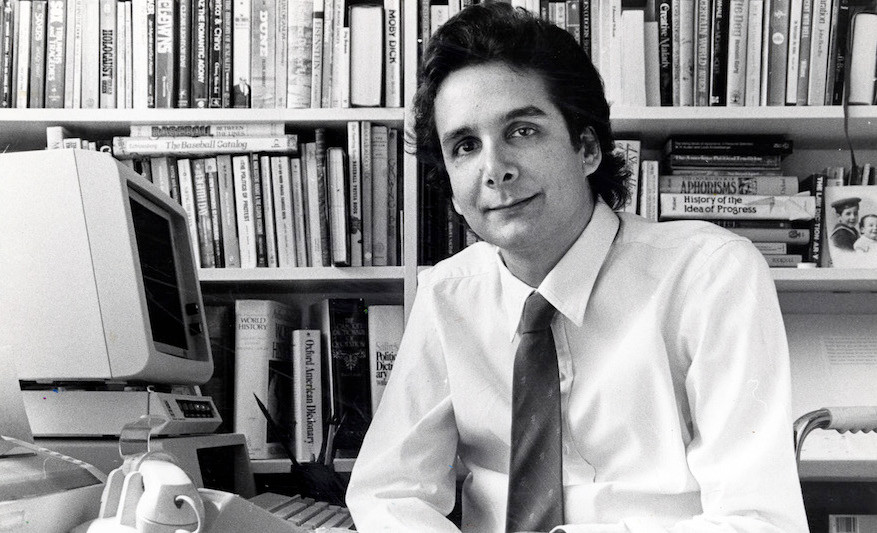We needed Charles Krauthammer
Charles Krauthammer would have been an inspirational figure even if he hadn’t become a writer.
The Pulitzer Prize-winning columnist, who died on June 21 at the age of 68, was laid low as a 22-year-old medical student when a pool accident left him a quadriplegic. Knowing that people would consider his ability to “just muddle through life” as a “great achievement,” he resolved to carry on as if he had never been injured at all. Krauthammer continued his studies at Harvard and became a brilliant psychiatrist.
That was just the first chapter in a remarkable life. After working for the government as a medical expert, Krauthammer caught the political bug. A self-described New Deal liberal, he worked as a speechwriter for Vice President Walter Mondale, but his sympathy for the conservatism of Ronald Reagan — who would defeat Mondale and President Jimmy Carter — would define his subsequent work.
Krauthammer switched to political writing full-time at The New Republic, and then The Washington Post and Time magazine, and quickly became one of the most influential writers of his generation, of any political stripe. A stalwart Cold Warrior and a foe of Islamist tyranny, he led the debate on foreign policy and domestic issues for decades. He was a valiant defender of Israel in an era when Zionism had gone out of fashion. His analytical mind, encyclopedic knowledge and sharp wit brought insight to an enormous range of topics and a vast body of work on, as the title of his essay collection read, the “Things That Matter.”
Krauthammer’s work was treasured by his many fans and served as an inspiration for many younger conservatives. I count myself as one of those who looked to him as a role model, and I’m particularly proud of his generous comments that he shared in our few interactions over the years.
It is particularly painful to lose him, because we need voices like his now more than ever.
It’s not just because his work was intellectually rigorous, his ability to hone in on the weaknesses of his opponents’ arguments was so spot-on. We miss Charles Krauthammer because he embodied a style of reasoned politics that is rapidly being marginalized, if not rendered extinct.
Ours is a time when serious intellectual arguments have been largely replaced by shouting matches. We can place some of the blame on Donald Trump, whose election Krauthammer vigorously opposed. But as Krauthammer understood, Trump’s willingness to say anything in pursuit of scoring a point was a symptom, not a cause, of the way political culture had shifted. The support for Trump’s revolution was a function of both the left’s condescension to Americans and the shameless liberal bias that characterized most of mainstream news coverage.
Krauthammer offered us something different than the mindless exchange of insults and personal attacks from both left and right. A public intellectual in the best sense of the term, Krauthammer was a man of ideas, not merely opinions. He offered reasoned arguments, not just partisan assertions. He relentlessly advocated for principles, not momentary advantages that win news cycles.
His ability to meet them on their own turf caused many liberals to never forgive him for the drubbings he gave them. Some on the populist right bitterly resented him for exposing their faulty thinking as well.
But in his weekly columns for The Washington Post and in his appearances as a television talking head — most notably, on Fox News’ “Special Report” program every weekday night for a decade — Krauthammer gave America an ongoing clinic in political debate. Whether or not you agreed with him on all issues or identified with his neoconservative philosophy, his goal was to make his readers and listeners think, rather than follow partisan talking points. Just as important, he did so with the good humor and humility that is particularly lacking in the debate between Trump and his supporters, and the “resistance” determined to demonize them both.
Our public square is now a place where Krauthammer’s style has been replaced by a tide of vulgar venom from both liberals and conservatives. So while conservatives are sad that his voice is now silent, his ideological opponents should mourn a man who challenged them to reexamine their assumptions.
Charles Krauthammer deserves to be remembered for shaping serious political thought during his lifetime. But if we are to truly honor his memory, then all of us — those who venerated his work and those who opposed it — should try to emulate the reasoned style of commentary he modeled for us.
There will only be one Charles Krauthammer. But the best tribute to him would be for those who write and speak on politics, and their audiences, to try to be more like him.
May his memory be for a blessing.
Jonathan S. Tobin is editor in chief of JNS.

 44.0°,
Mostly Cloudy
44.0°,
Mostly Cloudy 







